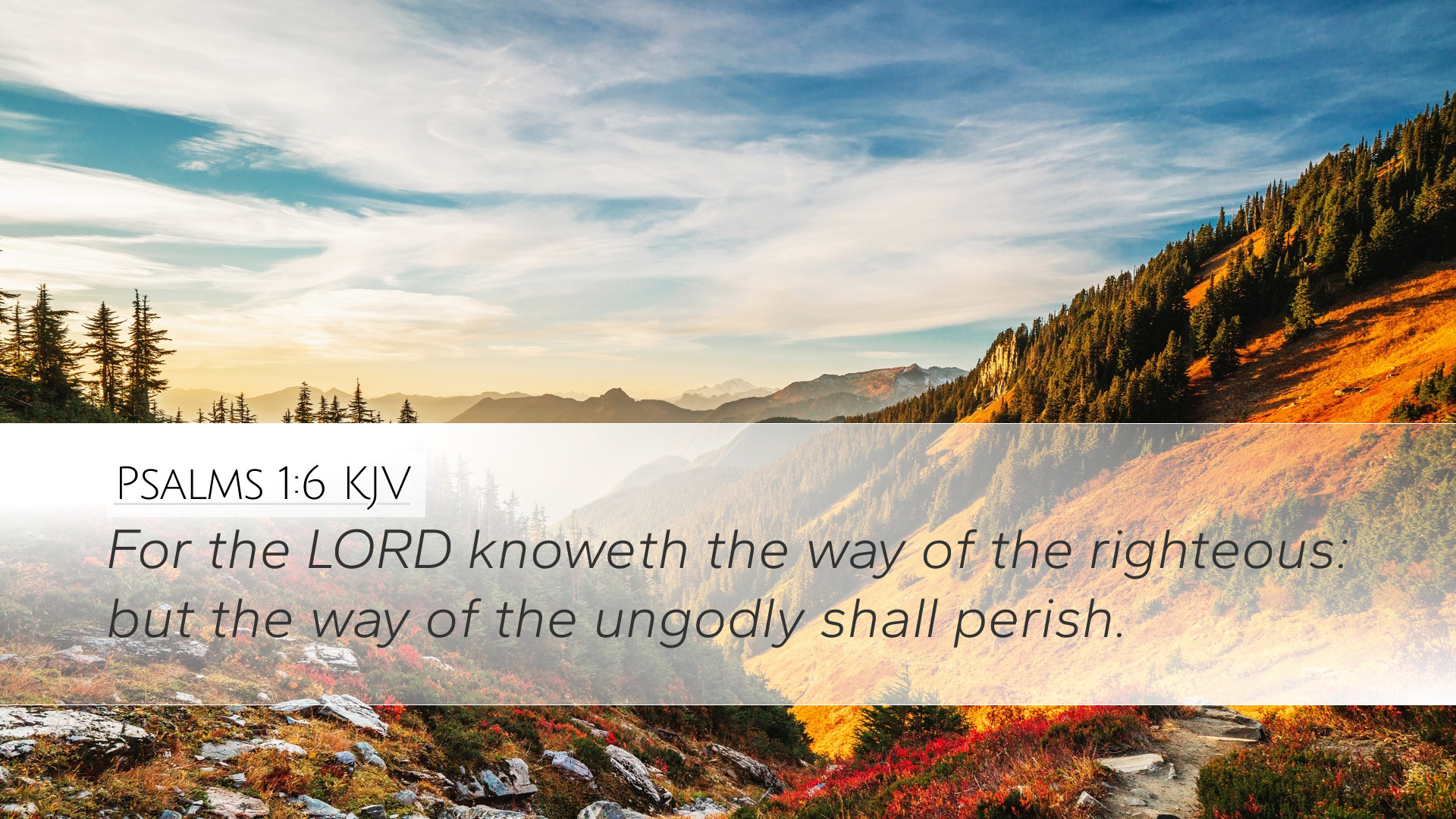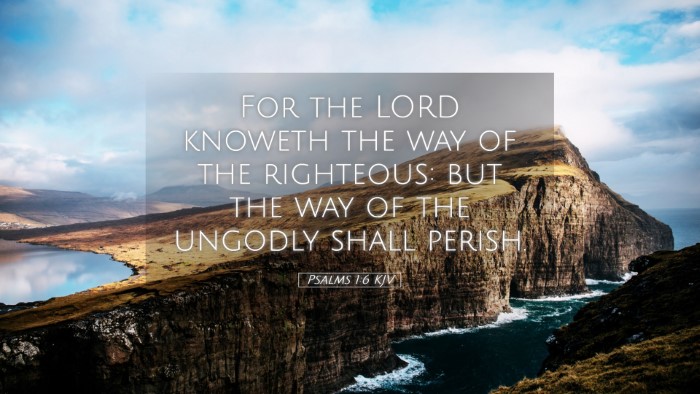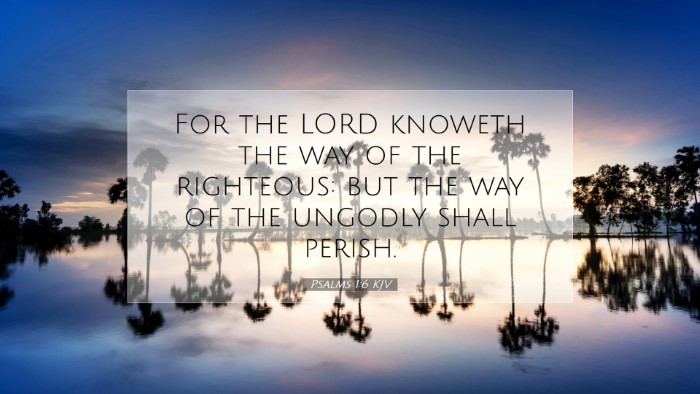Commentary on Psalms 1:6
Psalms 1:6 states: "For the Lord knows the way of the righteous: but the way of the ungodly shall perish." This verse encapsulates a fundamental principle regarding the nature of God’s relationship with humanity and illustrates the diverging paths taken by the righteous and the wicked. Insights from several public domain commentaries provide a holistic understanding of this verse for pastors, students, theologians, and Bible scholars.
General Overview
This Psalm contrasts the righteous and the wicked, portraying the consequences of their choices. The realization that the Lord knows the way of the righteous implies not only divine awareness but also divine guidance and protection over their lives. In contrast, the path of the ungodly is depicted as leading to destruction, offering a solemn warning about the inevitable outcomes of sinful living.
Matthew Henry's Commentary
Matthew Henry emphasizes that this verse signifies God’s intimate knowledge of the righteous. He notes that the term "knows" reflects more than mere awareness; it signifies a relationship that includes care, direction, and continual watchfulness. Henry explains that for the righteous, God’s knowledge leads to joyful security and assurance:
- God’s Sovereignty: Henry asserts that God governs the world with justice and righteousness, noting that He looks favorably upon those who follow His commandments.
- Assurance for the Righteous: The righteous can take comfort in the knowledge that God supports their way. God’s presence ensures that they are never alone in their journey.
- Contrast with the Wicked: The ungodly, on the other hand, are depicted as those who are in danger of perishing. Henry points out that their way is characterized by moral decay and ultimately leads to ruin.
Albert Barnes' Notes
Albert Barnes provides an analytical approach to understanding the term "the way of the righteous." He highlights the aspects of righteousness which denote not just an ethical stance but a lifestyle in alignment with God’s will:
- The Road of Righteousness: Barnes elaborates that the way of the righteous involves a continual pursuit of holiness, reflecting a life dedicated to following God’s precepts.
- Divine Knowledge: He explicates that God’s knowledge of the righteous includes His approval and guidance. The believer can take solace knowing that their path is aligned with divine favor.
- The Fate of the Ungodly: In contrast, the path of the ungodly is described by Barnes as fraught with danger, ultimately leading to their downfall. He warns that they may prosper for a time, but their end is destruction.
Adam Clarke's Commentary
Adam Clarke provides a theological perspective, interpreting the phrase "the way of the righteous" as indicating the moral and spiritual journey governed by God’s law:
- Moral Path of the Righteous: Clarke emphasizes that the righteous are those who display integrity, and their conduct is in accordance with God’s word, which guides their actions.
- Preservation by God: He notes that the Lord's knowledge of the righteous indicates His active involvement in their lives. God does not merely observe; He preserves and leads them along their path.
- Judgment of the Ungodly: Clarke warns that the fate of the ungodly is not simply a result of choice but a divine judgment. Their paths, characterized by sin and rebellion, are ultimately doomed to destruction.
Theological Implications
From the combined insights of Matthew Henry, Albert Barnes, and Adam Clarke, we can derive several theological implications from Psalms 1:6:
- God’s Intimacy with the Righteous: The knowledge that God has over the way of the righteous fosters a sense of companionship, suggesting that God is actively involved in the lives of believers.
- The Inevitability of Consequences: The distinction between the paths of the righteous and the ungodly highlights a core biblical principle: choices have consequences. The righteousness led lives are blessed, while the paths of wickedness yield destruction.
- Encouragement for the Righteous: This verse encourages believers to remain steadfast in their faith, knowing that God is aware of their labor and commitment, and His blessings will follow those who are loyal to Him.
Conclusion
Psalms 1:6 serves as a powerful reminder of the dichotomy of the ways humans can choose—righteousness or wickedness, life or destruction. The insights drawn from public domain commentaries bring depth to our understanding of God's knowledge and guidance over the righteous and highlight the gravity of the consequences stemming from our choices. In a world fraught with moral ambiguity, this verse calls believers to a life of righteousness, underscored by an unbreakable connection with their Creator.


